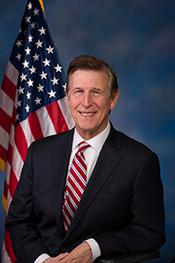H.R. 4439: Unemployment Insurance Modernization and Recession Readiness Act
The "Unemployment Insurance Modernization and Recession Readiness Act" is designed to improve and update the unemployment benefits system in several key ways to support individuals during periods of unemployment. The primary goals include:
Enhancements to Unemployment Benefits
The bill proposes to:
- Extend eligibility for unemployment benefits to more individuals, providing a broader safety net.
- Modernize the calculation methods used to determine benefit amounts, making them more reflective of current economic conditions.
- Implement full federal funding for unemployment benefits, ensuring that financial support is available during times of high unemployment, which may arise from economic downturns.
Adjustments to State Laws
States will have the flexibility to adjust their unemployment laws to align with these federal provisions, which must be in place by the year 2027. This aims to create a more uniform approach to unemployment benefits across the country, while allowing states to address their specific needs.
Support for Victims of Violence or Harassment
The bill enables individuals who leave their jobs due to incidents of violence or harassment to qualify for unemployment benefits, provided they can present adequate documentation. States are required to:
- Clearly define what constitutes qualifying acts of violence.
- Establish guidelines regarding the types of evidence that will be accepted, ensuring a fair evaluation for affected individuals.
This provision is set to take effect from 2027.
Jobseeker Allowances and Employment Criteria
The legislation outlines specific conditions under which jobseeker allowances may be granted. Key exceptions to the typical requirements include:
- Attendance at training programs.
- Temporary layoffs.
- Other compelling personal reasons.
Additionally, the bill requires comprehensive record-keeping of employment-related activities for individuals receiving benefits. It also prohibits the refusal of suitable work unless it meets certain criteria, which will be defined to protect workers from being forced into unsuitable employment situations.
Implementation Timeline
Many of the changes proposed by this bill will be gradually rolled out, with various provisions set to take effect as soon as possible, while some are specifically designated to begin implementation in 2027.
Relevant Companies
None found
This is an AI-generated summary of the bill text. There may be mistakes.
Sponsors
1 sponsor
Actions
2 actions
| Date | Action |
|---|---|
| Jul. 16, 2025 | Introduced in House |
| Jul. 16, 2025 | Referred to the Committee on Ways and Means, and in addition to the Committee on the Budget, for a period to be subsequently determined by the Speaker, in each case for consideration of such provisions as fall within the jurisdiction of the committee concerned. |
Corporate Lobbying
0 companies lobbying
None found.
* Note that there can be significant delays in lobbying disclosures, and our data may be incomplete.
Potentially Relevant Congressional Stock Trades
No relevant congressional stock trades found.
